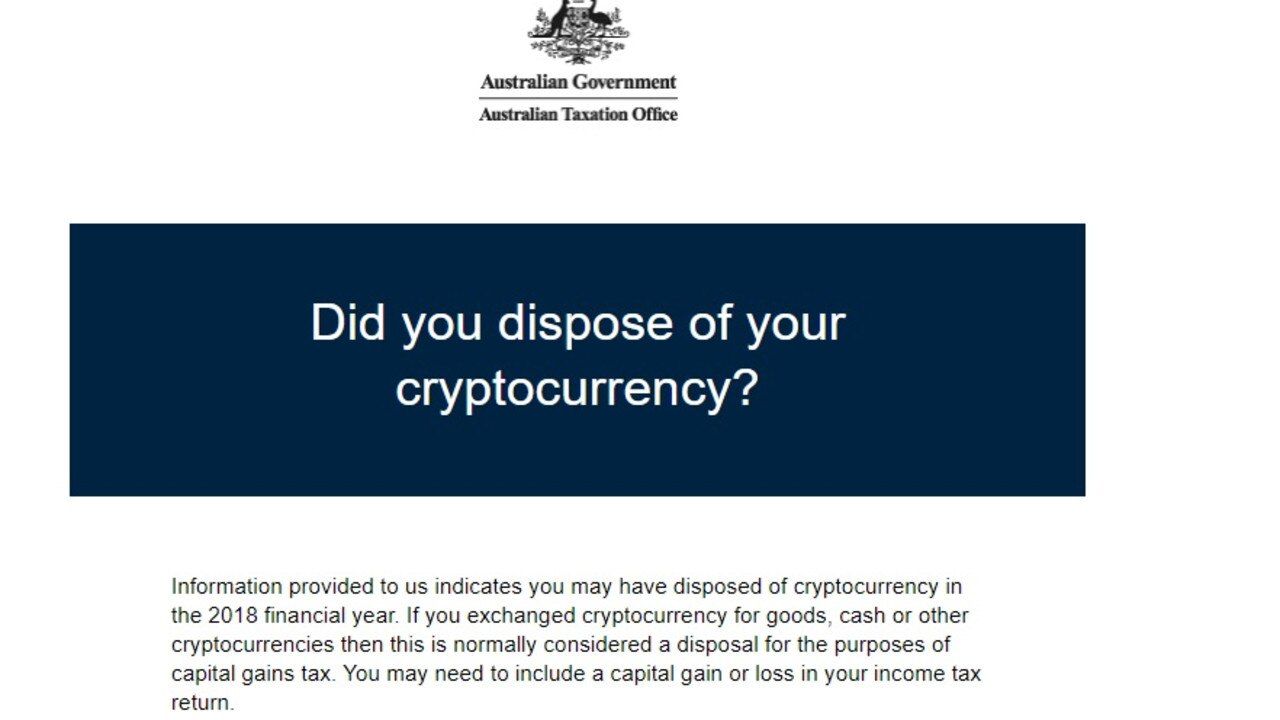Note: All information provided below is for information purposes only and does not constitute financial, tax or legal advice, and is not intended to be used by anyone for the purpose of financial advice, legal advice, tax avoidance, promoting, marketing or recommending to any other party any matter addressed herein. For financial or legal advice please consult your own professional.
Earlier this year the ATO started sending out warning letters to people who have potentially misreported their crypto taxes. And with us fast approaching the end of 2020 Financial Year many are wondering if they have to pay taxes on their Bitcoin purchases.

What is considered a taxed event?
The simple answer is that if you sold or traded cryptocurrencies this counts as a tax event in the eyes of the ATO.
For example, if you purchased one Bitcoin for $1,000 and later sold it for $10,000, this would be a capital gain of $9,000. Depending on your circumstances, you may be eligible for a long term capital gain discount of 50% if you have held for one year. That means only $4,500 would be taxable.
Any sell transactions are considered a disposal of an asset by the ATO. This includes transactions where you sold crypto directly for another cryptocurrency. E.g. if you sold Bitcoin for Ethereum, this is a tax event.
The ATO requires you to keep detailed records of all cryptocurrency transactions for auditing purposes.
What about using crypto currency as a “personal use asset”?
It is important to note that the personal use exception for crypto currencies is heavily dependent on how long you have held the asset, and if you have made any capital gains. More information can be found here. Somebody who has held Bitcoin for a few months or years and made a profit before selling it back into fiat or another cryptocurrency is not going to be able to argue personal use. For the majority of users it is unlikely you are able to claim a personal use exception. If however you have made a consumer purchase shortly after purchasing crypto currency then you might be able to claim the exemption. For example, you might have purchased Bitcoin and shortly thereafter bought a product on an online store that only accepts Bitcoin. You should talk to your accountant to discuss your individual circumstances.
But I thought I only had to pay crypto taxes if I withdrew back into my Australian bank account. Do I still have to pay taxes?
Quite possibly, yes. If you sold Bitcoin for another cryptocurrency such as Ethereum, then the ATO expects you to keep a record of the AUD value at the time of sale and calculate gains or losses at this time.
But all these transactions are hard to keep track of. How am I supposed to calculate all my crypto taxes?
Australian Crypto Tax Calculator is designed to make it really easy to organise your crypto tax records and calculate your crypto taxes. You can import your transaction data from HardBlock and calculate your crypto taxes in less than 2 minutes.
